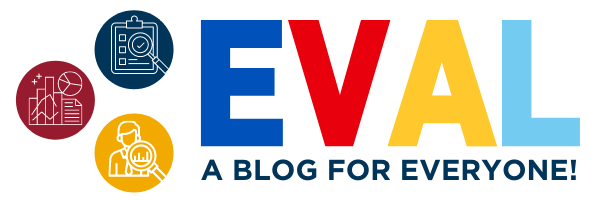What Works with What Works Clearinghouse

What Works with What Works Clearinghouse
Hey! We are the newest members of KU’s CEOP RED Team! In our first few months, we’ve been introduced to a lot of new acronyms that are regularly used within education evaluations. To help us get started, we’ve been using Meghan’s blog explaining ESSA’s Evidence Standards, however, we still had questions about the What Works Clearinghouse (WWC).
Before joining this team, I had never heard of WWC. But the more I learn about it, the more I learn how valuable it can be to us as evaluation researchers, as well as to education practitioners. Whether you are teaching elementary school or preparing your students for college, WWC has a treasure-trove of Practice Guides, Intervention Reports, and Individual Studies for educators.
Right—so WWC is a resource that is managed by a team from the Institute of Educational Sciences (IES) which is a part of the US Department of Education. All of the studies included in the WWC are reviewed by a panel of expert. You might be asking yourself, what do you mean a panel of experts review the study? A part of WWC’s mission is to produce systematic reviews that provide a comprehensive overview of existing education research. To help practitioners understand studies, the WWC thoroughly assesses a study’s evidence provided on the effectiveness of the intervention. These are called a WWC study review (and you can learn more about their review process here).
Plus, if you are an evaluation researcher, you can become a WWC certified reviewer yourself. It can be a great way to strengthen your understanding of group design standards in research, as well as providing external credentials to help demonstrate your training and understanding to clients.
I think it’s nice that the website has a lot of informational videos and infographics so it doesn’t get too overwhelming. Especially since they have resources for educators, education researchers, evaluators, practitioners, and really anyone who is interested in education.
You can think of the WWC almost like a Spark Notes for researched practices and ideas for educators to bring to their schools and students. Instead of having to search through academic sites, trying to find the perfect keywords, and hoping not to hit a paywall, practitioners have free access directly to education materials.
Yeah, what I imagine the most useful piece of it to be is starting a study or program, realizing you need reliable research to back up what you want to do, and being able to search for what you need along with a reliable review of it. Digging through Google Scholar for hours just to find something you need to pay $100 for anyway is just not the way to go.
My favorite thing in the WWC is the Intervention Reports. They have different curriculums, programs, practices, and policies all designed for educators to bring to their classrooms to help improve their students’ outcomes in a variety of areas.
So, it seems like overall there are those intervention reports, practice guides for educators, reviews of specific studies, and a whole handbook of their procedures.
They really want to make this a thorough tool. I’ve even found tutorials on how to use the site, from PDFs to YouTube. I’ll be happy to link a few we found below!

From someone who’s starting something new, looking at something from the beginning can be daunting. But the folks from WWC want you to find what you’re looking for on their site. And from someone who is just learning to use their site, you can find a lot of great resources there once you dive in. So, if you’ve read this far, follow their tutorials, keep at it, and you’ll find the education research you’re looking for!
Tutorials & WWC Links to Check Out!
- Using What Works Clearinghouse (WWC) to Find What Works
- How to Use What Works Clearinghouse
- What We Do – Learn about the What Works Clearinghouse

Contributed By Michael L. Klein-Thibodeau and Amelia Murray
Michael L. Klein-Thibodeau is an Assistant Researcher for the Research, Evaluation & Dissemination Department at the Center for Educational Opportunity Programs. He currently works on National Professional Development (NPD) Program grants, as well as assisting with Title III evaluations.
Amelia Murray is an Assistant Researcher with the Research, Evaluation & Dissemination Department in the Center for Educational Opportunity Programs. She currently works on data entry and evaluation of GEAR UP and other educational access programs.
Follow @CEOPmedia on Twitter to learn more about how our Research, Evaluation, and Dissemination team leverages data and strategic dissemination to improve program outcomes while improving the visibility of college access programs.